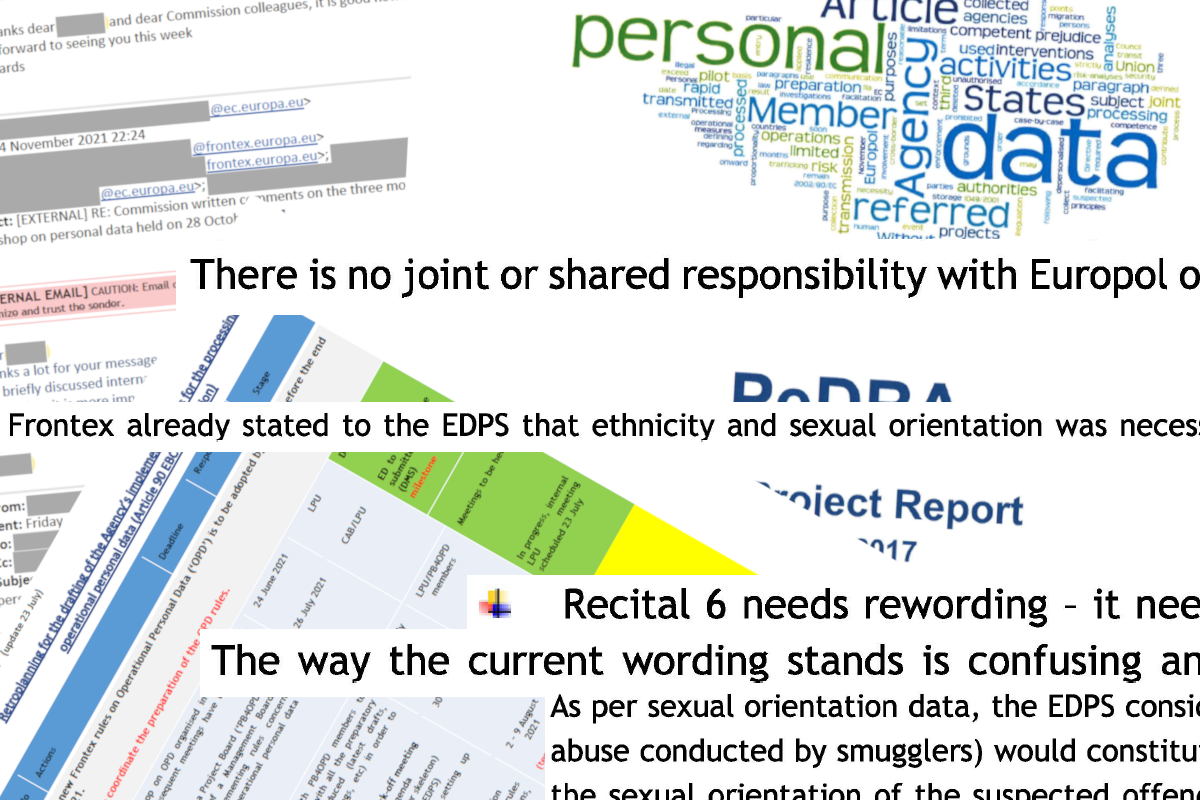EU seeks policing agreement with Israel as far-right leader tipped to become police minister
04 November 2022
EU and member state officials have begun discussing a working agreement between Europol and the Israeli authorities. It would allow the exchange of personal data, including sensitive categories of data such as biometrics, racial and ethnic origin, or religious or political beliefs. It also includes derogations that would allow data transferred by Europol to be used in the occupied territories.
Support our work: become a Friend of Statewatch from as little as £1/€1 per month.

Israeli riot police in Tel Aviv. Image: Victor Bezrukov, CC BY-ND 2.0
The EU has been seeking an agreement between Europol and the Israeli authorities for some time - the Commission received permission to open negotiations in 2018, alongside a number of other countries in the Middle East and North Africa region. To date, most of the negotiations have made little, if any, progress.
Now, however, a draft agreement (pdf) is on the table and was discussed (pdf) by the Council's Justice and Home Affairs Counsellors working party on 26 September.
Its objective is:
"...to allow the transfer of Personal Data between the Competent Authorities of Israel and the European Union Agency for Law Enforcement Cooperation (Europol) in order to support and strengthen the action by the authorities of the Member States of the Union and those of Israel, as well as their mutual cooperation".
Under Article 4 on general data protection principles, the draft agreement says:
"Each Contracting Party shall ensure that its Competent Authorities do not transfer Personal Data which have been obtained in manifest violation of human rights recognised by the norms of international law binding on the Contracting Parties. Each Contracting Party shall ensure that the Personal Data received are not used to request, hand down or execute a death penalty or any form of cruel or inhuman treatment."
The draft agreement appears to forbid the use of data transmitted by Europol in the occupied territories - but it contains a substantial exception.
Article 32 states:
"1. In accordance with European Union policy, this Agreement shall not apply to the geographic areas that came under the administration of the State of Israel after 5 June 1967. This provision should not be construed as prejudicing the Contracting Parties’ respective principled and long-standing positions regarding the status of these areas. This provision is also without prejudice to the possibility to use Personal Data received under this Agreement pursuant to Article 7 of this Agreement."
Article 7 states that:
"Israel shall ensure that Personal Data received under this Agreement is used by its Competent Authorities, or other authorities in Israel to which such Personal Data has been transferred pursuant to Article 8 [dealing with onward transfers of data], only in the territory to which this Agreement applies pursuant to Article 32(1)."
It then goes on to say:
"By way of derogation, a Competent Authority of Israel which has received Personal Data under this Agreement, or another authority in Israel to which such Personal Data has been transferred pursuant to Article 8, may exceptionally use such Personal Data in the geographic areas that came under the administration of the State of Israel after 5 June 1967, in accordance with the conditions and safeguards set out in this Agreement, and solely for the protection of the civilian population, if the use is:
(a) essential for the prevention of a criminal offence in case of an imminent threat to life; or
(b) necessary for the prevention, investigation, detection, or prosecution of Criminal Offences, and Europol has given its prior authorisation for such use following a corresponding request."
On Tuesday Benjamin Netanyahu, "the dominant Israeli politician of his generation, won a clear parliamentary majority, boosted by ultranationalist and religious parties," although he is yet to form a government.
One of his likely allies in doing so will be the Religious Zionism Party, led by Itamar Ben-Gvir, who was convicted in 2007 of racist incitement against Arabs and support for a terrorist organisation.
Some believe that he may become the country's new public security minister:
"...in closed meetings, significant concerns are voiced regarding the possibility that Omer Bar Lev’s replacement as public security minister will be chosen from the ranks of the extreme right, and several senior officers voiced concern of the possibility that Ben-Gvir will be appointed to the post."
If that happens, he will presumably be responsible for implementing the Europol-Israel deal, if an agreement is reached between the two sides.
Documentation
- NOTE from: Commission Services: DRAFT Agreement between the European Union, of the one part, and the Government of the State of Israel, of the other part, on the exchange of Personal Data between the European Union Agency for Law Enforcement Cooperation (Europol) and the authorities of Israel competent for fighting serious crime and terrorism (WK 12569/2022 INIT, LIMITE, 26 September 2022, pdf)
Our work is only possible with your support.
Become a Friend of Statewatch from as little as £1/€1 per month.
Spotted an error? If you've spotted a problem with this page, just click once to let us know.

